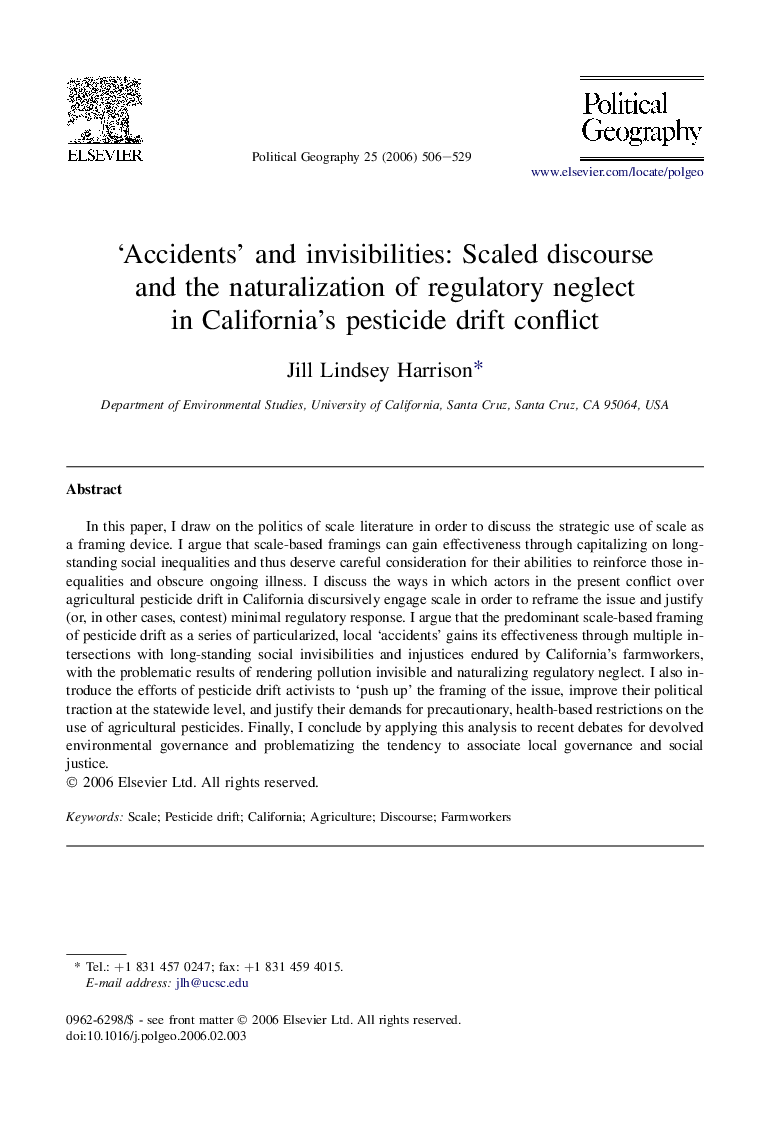| Article ID | Journal | Published Year | Pages | File Type |
|---|---|---|---|---|
| 1062409 | Political Geography | 2006 | 24 Pages |
In this paper, I draw on the politics of scale literature in order to discuss the strategic use of scale as a framing device. I argue that scale-based framings can gain effectiveness through capitalizing on longstanding social inequalities and thus deserve careful consideration for their abilities to reinforce those inequalities and obscure ongoing illness. I discuss the ways in which actors in the present conflict over agricultural pesticide drift in California discursively engage scale in order to reframe the issue and justify (or, in other cases, contest) minimal regulatory response. I argue that the predominant scale-based framing of pesticide drift as a series of particularized, local ‘accidents’ gains its effectiveness through multiple intersections with long-standing social invisibilities and injustices endured by California's farmworkers, with the problematic results of rendering pollution invisible and naturalizing regulatory neglect. I also introduce the efforts of pesticide drift activists to ‘push up’ the framing of the issue, improve their political traction at the statewide level, and justify their demands for precautionary, health-based restrictions on the use of agricultural pesticides. Finally, I conclude by applying this analysis to recent debates for devolved environmental governance and problematizing the tendency to associate local governance and social justice.
